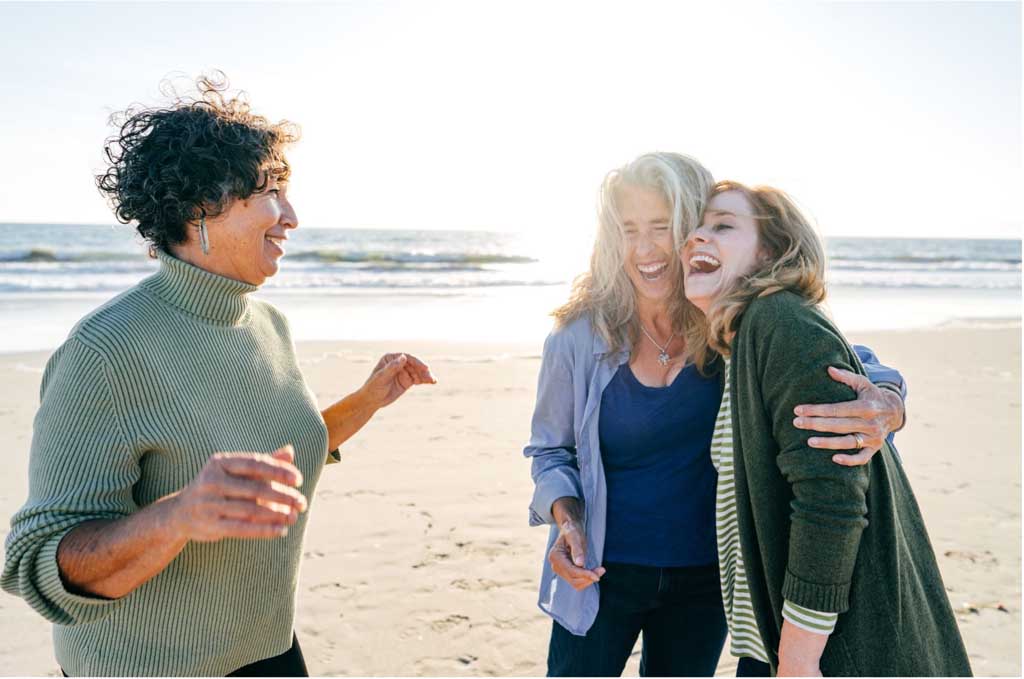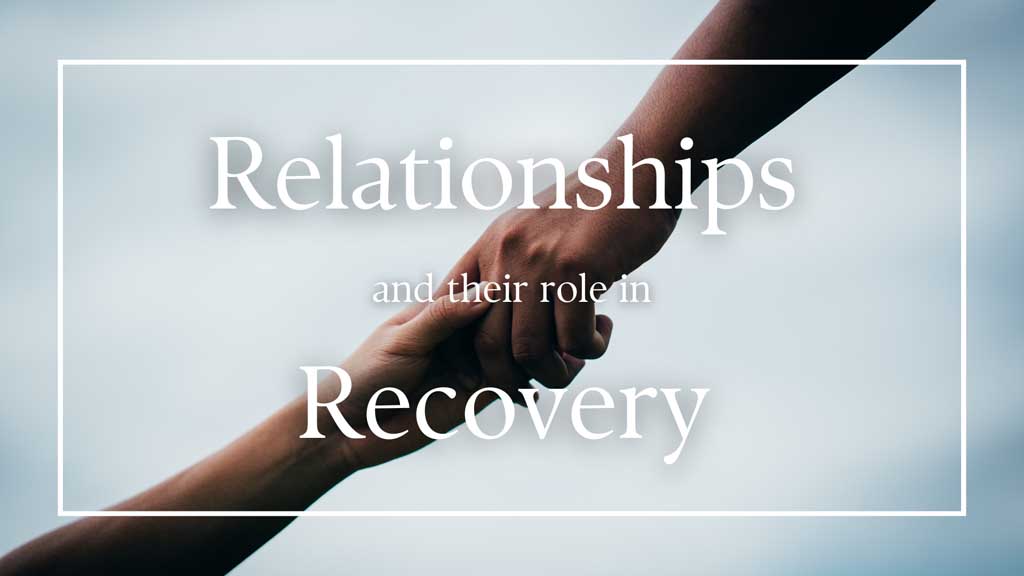Relationships, whether romantic, familial, friendly or professional, are crucial to the human experience and responsible for giving our lives purpose. Love has a profound effect on our mental and physical states – romantic love might make our hearts race gleefully and offer us with a sense of security while the loss of a family member or friend can evoke excruciating pain. Without these positive, supportive connections in our lives, including maintaining a healthy relationship with ourselves, the average day can become bleak, directionless and isolated. Meaningful bonds are necessary for living our best lives possible.

One of the most devastating facets of substance use disorder is the harm it causes to the relationships with family, romantic partners, friends, or colleagues in our lives. And while recovery might be an isolating journey at the start, healing old and nurturing new healthy relationships can provide the emotional support needed in order to flourish during long-term recovery. Strong, positive support and patience from the right people can help recovering substance users walk away from toxic, triggering relationships and habits as they make their way towards a more balanced life. However, navigating relationships can be difficult for both those in recovery as well as those who care for the recoveree. Though with the non-biased and compassionate guidance from a professional recovery coach, mending seemingly burnt bridges and thriving during recovery, is more than possible.
Human Connection And Recovery
It is often said that the opposite of substance dependency is not recovery but rather human connection. While toxic relationships or crushing loneliness may be what initiated someone’s substance dependency – when considering long-term recovery, research suggests that having healthy, supportive relationships dramatically improve success rates. According to the SAMHSA, one of the four major dimensions of recovery is community which entails having relationships and social networks that provide support, friendship, love and hope. Humans are social creatures, even self-proclaimed introverts need emotional connection on some level, and without those bonds, our mental, emotional and physical health suffer. No where is this truer than during recovery.
Overcoming a substance use disorder requires professional, certified attention from someone with the experience and empathy necessary to help. When expert guidance is joined by nurturing relationships, the recoveree is supplied with the safety and stability necessary for this journey to be successful. For loved-ones of those in recovery, learning how best to be supportive while avoiding triggering or enabling behaviors is invaluable in creating a strong foundation on which the recoveree can build their new life upon. For many recoverees, involving their network of support in their recovery journey and learning how to better communicate with the guidance of a certified relationship recovery coach, is the key to life-long-recovery.
Not All Bonds Are Created Equal

The physical challenges of breaking a detrimental cycle of substance use can be monumental and draining but are only one aspect of the path to recovery. The mental and emotional struggles that must be circumnavigated as well, can be even longer-lasting and entirely all-consuming. This is especially true for individuals whose substance dependency is tied to a particular social circle or is triggered by unhealthy family dynamics. Removing these toxic relationships from the equation is necessary to break the cycle and prevent a return to use. However, when these bonds are severed, the recoveree is often left adrift and looking for any kind of connection as a substitute. Unfortunately, this is typically the point during the recovery journey in which trauma bonds and codependency can develop with others, and why the myth that those recovering should go it alone, exists. In fact, healthy relationships and strong bonds are consider vital to the success of recovery, but it can be hard to know what a healthy relationship looks like while healing. With the guidance of a professional relationship coach who specializes in substance use disorders, someone recovering can learn how to implement personal boundaries while forming more meaningful connections. Recovery should never be a solitary journey but it must also be a healing venture for all those involved, and toxic relationships will do nothing but hinder or reverse progress.
Relationships and Recovery Coaching

Whether an individual is a recoveree – hoping to reconcile past bonds and form new connections – or the loved one of someone in the process of recovery, learning how to navigate the healing process can be a daunting one. There can be feelings of failure, hopelessness, abandonment, resentment, confusion, blame and more from both parties that must be addressed and worked through for those connections to be remedied. Such emotions being allowed to run rampant could potentially harm the recoveree’s relationship with their own mental health, dramatically increase the risk of isolating behaviors and a return to use. However, a certified recovery coach who understands the complexities of relationships and the impact substance use disorders can have on them, can provide the necessary support when facing these challenges.
At Maximum You Coaching, both persons in recovery as well as their loved ones will find the space they need in order to feel heard, seen, supported, guided and valued. Through nonjudgmental and compassionate support from a certified professional, who is in long-term recovery themselves, the recovery journey and the complexities of maintaining healthy relationships, can be balanced. Whether partners, family, friends or coworkers, there are techniques and strategies (such as developing healthy but firm boundaries with one another and improving awareness of triggering actions and behaviors) that need incorporating in order to allow any mending to occur. Using tangible tools, guidelines and techniques, negative emotions can be reframed and bonds allowed to mend – though tensions may rise before healing can really begin. Relationships are hard, recovery is hard and learning how to healthily navigate the two simultaneously is even harder. Nevertheless, the effort is worth exerting and Maximum You Coaching is here to help. With strong, healthy and loving relationships the odds for long-term recovery increase substantially and life can finally be free to flourish.
If you or a loved one is close to finishing or has completed substance abuse or mental health treatment, Maximum You Coaching can provide continued support. Send an online message for more information or call today to schedule your appointment – both in-person or telephone session available.

